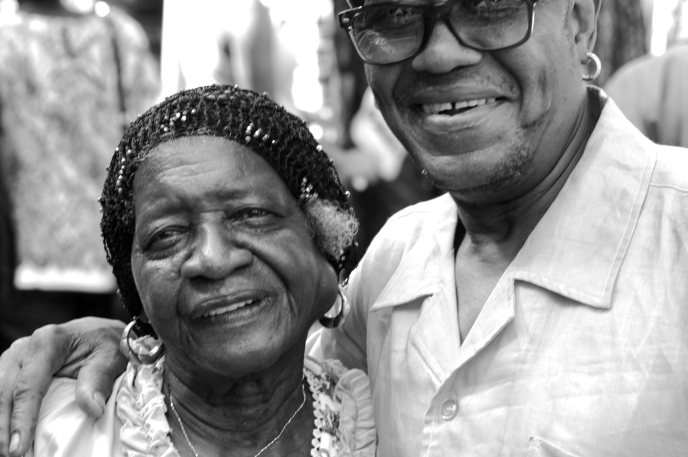
Sharing stories and history
May 4, 2021
This blog was written as part of Charlotte Mecklenburg Library's Black Lives Matter program initiative. Learn more about the program and corresponding events here.
The Black Lives Matter (BLM) movement is historic, with people globally embracing the movement's mission: advocate for the rights of Black people in America; to stand up to injustices inflicted upon Black Americans; to build a more just and equitable world for Black communities. So, how does it compare to the Civil Rights Movement? What can we learn from older members of our communities that we can apply to the BLM movement?
May is Older American's Month and a chance to celebrate senior communities, aging friendly & gracefully, and engaging with older adults. Aside from celebrating the older members of our community, it is also a chance to learn. Learn about how they built their lives, overcame trials and tribulations, and what they think of the evolving world around them. The Civil Rights Movement spanned over 20 years, from 1947 to 1968, with advocates from the East to West coast -- and around the world. And, while there are people who dedicate their life to documenting history, not all people prioritize learning about the life and history of their older family and/or community members. With the onset of a global pandemic -- older adults are at risk of isolation, and the need to connect is more than ever right now. While there aren't many silver linings to the pandemic, one good thing that can come from it is the opportunity to reconnect to distant relatives and friends.
It can be easy to postpone having conversations with loved ones about their life in an increasingly busy world. We also don't want to be intrusive in our quest to learn from older community members, so be sure to connect with people you have a relationship with. Or, seek out people (through church or family friends or other organizations you're affiliated with) who want to engage and share their experience. No matter your approach, please remember: Learning from our older community members isn't a right but rather a privilege.
We have a lot to learn, so active listening is the key and access to interview questions that support your genealogical efforts. Familysearch.org offers an updated, extensive list of questions to start your listening & learning process. Some questions include: How old were you during the Civil Rights Movement? Where were you living at the time? What was your community like? Don't feel obligated to use pre-made interview questions! Sometimes conversations can flow naturally, and we can take time to absorb what is being shared.
Some other useful tips for documenting oral histories:
● If permissions are granted, decide how you're going to record the interview.
● Consider having a photo or artifact to help jog memories
● Share interview questions in advance (so the person you're interviewing isn't caught off guard and has time to prepare what they want to share)
● Ask open-ended questions
● Ask if you have permission to share what you learn (some people may want confidentiality, and that is their right)
● Consider the time of day and length of the interview. Recounting memories, whether they are positive or negative, can take a lot of energy. Be considerate of the interviewee's health & time.
If you're interested in genealogy or want more resources on interviewing people to learn about local history, contact the Robinson Carolina Room for tips.
--
This blog was written by Amrita Patel, library outreach coordinator.
